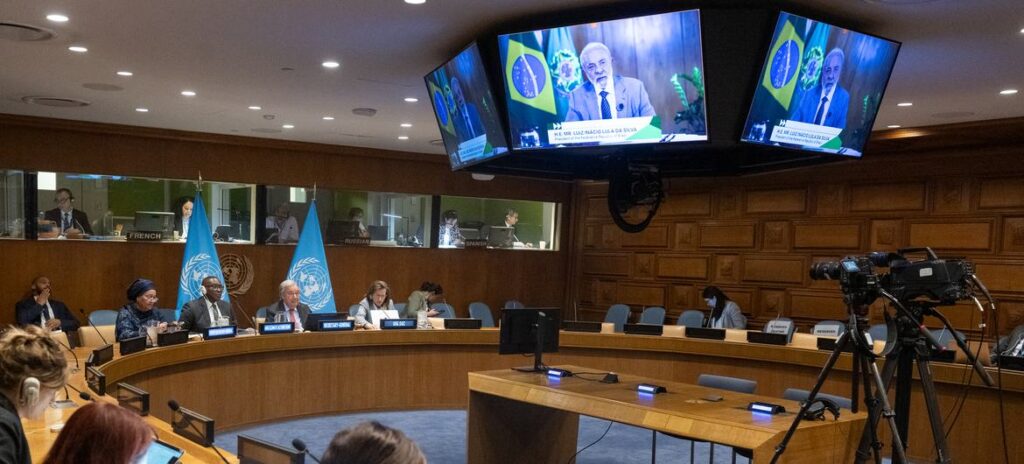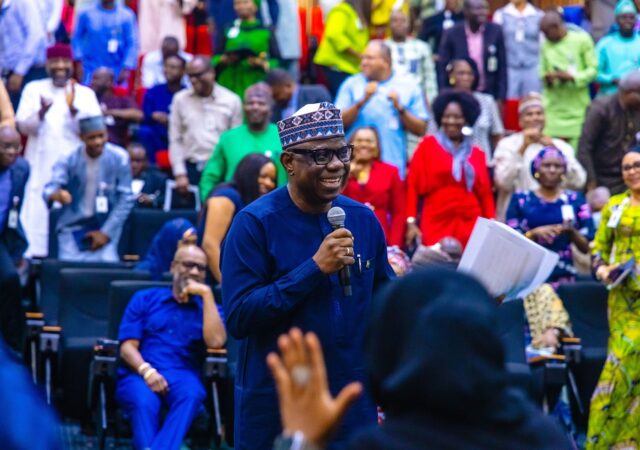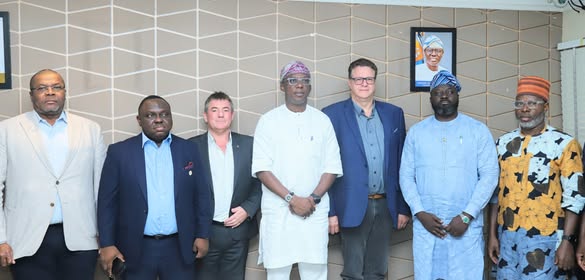-
Calls for Doubling Adaptation Finance to $40 Billion Annually by 2025
-
Advocates for Increased Funding to the Loss and Damage Fund
In a stirring call to action following a high-level global leaders’ session on climate and the just transition, UN Secretary-General António Guterres urged the international community to deliver a credible roadmap to mobilize $1.3 trillion annually for developing countries by 2035.
The appeal, made in the lead-up to COP30 in Brazil, underscored the scale of global ambition needed to confront the climate crisis with fairness and urgency.

Addressing journalists after the session, Guterres opened with words of solidarity for the people of Türkiye amid a challenging period. He then described the meeting, co-chaired with Brazilian President Luiz Inácio Lula da Silva, as one of the most inclusive and diverse gatherings of global leaders focused solely on climate action in recent memory.
The session brought together 17 heads of state and government, including representatives from major economies such as China and the European Union, alongside leaders from some of the most climate-vulnerable regions and blocs: the African Union, ASEAN, CARICOM, and the Alliance of Small Island States.
“Despite massive global headwinds and intersecting crises, the message from today’s meeting was clear: we must not let climate commitments veer off course,” Guterres said.
He emphasized that as the world barrels toward COP30, there is no time to waste. While the climate crisis is exacerbating poverty, displacing communities, and fuelling instability worldwide, Guterres highlighted a powerful countercurrent: the accelerating clean energy transition.
“The clean energy revolution is unstoppable. Science is with us. The economics are in our favor,” he declared, citing falling renewable energy prices and booming job creation in the sector.
Responding to a question on his statement that no group or government could halt the clean energy revolution—especially given recent remarks from former U.S. President Donald Trump advocating increased fossil fuel extraction, Guterres remarked:
“The United States is a market economy. It’s not the government alone that determines production levels of fossil fuels or renewables. What we’re seeing now is a dynamic private sector—and several sub-national governments—leaning into renewables because it simply makes economic sense.”
“We need to see the U.S. in all its complexity, not only through the positions of its national leadership,” he added.
Guterres also pointed to signs of progress. Since the Paris Agreement, projected global warming has declined—from over 4°C this century to around 2.6°C if current climate pledges are met. But he stressed that even this trajectory is dangerously high. To bend the curve further, he laid out two urgent priorities for global leaders:
-
Enhancing National Climate Plans
The Secretary-General called on countries to submit stronger Nationally Determined Contributions (NDCs) well ahead of COP30. These plans, he said, must align with the 1.5°C goal, cover all greenhouse gases and economic sectors, and provide a bold roadmap for a just transition.
“Many leaders today committed to submitting ambitious plans as soon as possible—a strong message of hope,” Guterres noted.
On China’s participation, Guterres confirmed the attendance of the country at the meeting and provided a significant update:
“President Xi stated that China’s forthcoming NDC would cover all economic sectors and greenhouse gases. It’s the first time that China has clearly communicated this, and it’s a vital step forward.”
-
Scaling Up Support for Developing Nations
Guterres emphasized the disproportionate burden borne by countries that contributed least to the climate crisis.
He pointed out that although Africa holds 60% of the world’s best solar resources, it accounts for just 1.5% of installed solar capacity and receives only 2% of global renewable energy investment.
To change this, he urged developed countries to commit to a $1.3 trillion annual climate finance goal for the Global South by 2035. He also reiterated the importance of doubling adaptation finance to at least $40 billion per year by 2025 and increasing funding for the Loss and Damage Fund.
“This is a matter of justice. It’s also the only way to secure a global transition that works for all,” Guterres stressed.
Looking ahead, the Secretary-General announced that a special climate event will take place in September to sustain pressure and momentum in the final stretch toward COP30.
“We cannot, must not, and will not let up on climate action,” he concluded.








uulzc3
uulzc3
Great post! I really enjoyed reading this.